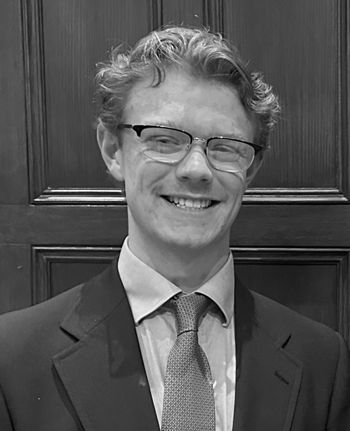Barnard student tries to keep Sikh group neutral, gets forced out by anti-Israel extremists anyway
A Sikh student at Columbia University’s Barnard College says she was pushed out of her leadership role in a Sikh group for initially refusing to support an anti-Israel group.
‘I think it’s asinine that celebrating the release of the hostages or commemorating Israeli lives lost is seen as “oppressive,”’ she said regarding some of the opposition she’s faced.
A pro-Israel student leader from a Sikh group at Columbia University’s Barnard College was ousted from her role following her attempts to keep the group politically neutral.
The student, known only as Simran, appeared on a Jan. 29 episode of “The Uproar” podcast to discuss how she was allegedly pushed to resign from her role as co-president of the Sikh student group Sewa, according to the Jewish Journal.
Sewa is “[a]n organization based upon the universal values of peace, equality, social justice, and the Sikh principle of sewa (selfless service),” according to the group’s Instagram page.
In her podcast appearance, Simran said that certain Sewa students wanted to sign on to officially support the agenda of Columbia University Apartheid Divest (CUAD), a pro-Palestine coalition, to which she offered different options such as “doing a peace prayer for lives lost on both sides . . . I also had the idea of putting out a statement to condemn the Oct. 7 massacre but also to condemn the loss of innocent lives. That was shut down as well.”
[RELATED: Suspended Columbia SJP club creates big pile of Kool-Aid snow mush to combat ‘genocide’]
Simran claimed that she was subject to “immense pressure” from some alumni to support CUAD, despite her own pro-Israel stance, the opposition of some Sewa students to being associated with CUAD, and her attempts to keep Sewa politically neutral on the issue, wrote the Jewish Journal.
CUAD is “a coalition of student organizations that see Palestine as the vanguard for our collective liberation” whose demands include for “government officials to support an immediate ceasefire in Gaza,” “[divestment] from companies profiting from Israeli apartheid,” and for Columbia to “change policy so that protests and events can be sanctioned within three days to allow students to organize under urgent circumstances,” said an op-ed penned by the group for the Columbia Spectator.
“Our coalition was reactivated in October 2023 in response to the overwhelming support for Palestinian freedom from students on Columbia’s campus. We are further moved to action by [Columbia’s] ostensibly politically motivated suspension of Students for Justice in Palestine and Jewish Voice for Peace,” the op-ed also stated.
Simran said: “I thought that staying sort of [a] neutral group but obviously allowing members to do what they wanted in their free time was the best way to go. I think it’s damaging to conflate an entire religion with one view or another on such a polarizing issue,” according to the Jewish Journal.
Simran eventually initiated a vote on the matter, which resulted in 75 percent of members voting to officially support CUAD’s agenda, wrote the Jewish Journal. Shortly after the vote, another Sewa leader informed Simran that “it was [the belief of certain Sewa members] that had I not been co-president, they would have reached the same decision to sign onto CUAD sooner. So for that reason, they had given me the option to either step down and resign as co-president, or be put through a formal impeachment process,” following which Simran stepped down from her position, the Journal continued.
[RELATED: Columbia students launch tuition strike to combat so-called ‘Israeli Apartheid’]
Speaking further on the podcast about the opposition she faced, Simran mentioned how she experienced backlash after posting an image on social media of a tattoo of Mia Schem, a French-Israeli woman who was taken hostage by Hamas and let go last November.
“I posted Mia Schem’s tattoo, ‘One day we will dance again,’ and I know that--for whatever reason--that was offensive to some people. I think it’s asinine that celebrating the release of the hostages or commemorating Israeli lives lost is seen as ‘oppressive.’”
Simran’s podcast appearance comes amidst a Congressional investigation of Columbia University regarding an “environment of pervasive antisemitism” at the school, reported Campus Reform.
Campus Reform has reached out to Columbia University, Sewa, Columbia’s chapter of Students for Justice in Palestine, and “The Uproar” podcast. This article will be updated accordingly.

